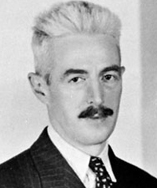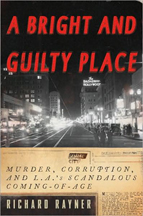 Dashiell Hammett, the man most responsible for the rise of hardboiled detective fiction, would have been 116 today.
Dashiell Hammett, the man most responsible for the rise of hardboiled detective fiction, would have been 116 today.
The litany of his best work is quite impressive, indeed: The Maltese Falcon, The Thin Man, The Glass Key, Red Harvest, and many dozens of short stories. Though his most famous creations are Sam Spade and Nick and Nora Charles (having Humprey Bogart, William Powell, and Myrna Loy bring those characters to life on the silver screen no doubt has something to do with that), the protagonist Hammett, himself once a Pinkerton Detective, turned to most frequently was The Continental Op, a short, pudgy middle-aged detective for the Continental Detective Agency.
We’re unapologetic Raymond Chandler fans here at Cladrite Radio — for our money, he’s king of the hardboiled hill — but we think Hammett is aces, too, and we certainly agree that he played a vital role in legitimizing what was then a new genre of detective fiction. Hammett may not have invented hardboiled mysteries, but he opened the door for the literary world to give detective fiction its due and he was a huge influence on so many writers that followed him — Chandler and Ross Macdonald chief among them. As Chandler wrote in his essay on the art of the mystery, The Simple Art of Murder, Hammett “gave murder back to the kind of people that commit it for reasons, not just to provide a corpse.”
If you’ve never read Hammett, you have many options as to where you might begin. You could start with some of the Continental Op stories or perhaps our favorite of Hammett’s novels, The Maltese Falcon. Whichever you choose, you’re sure to be left wanting more when you’ve turned the last page. Hammett’s is a habit-forming oeuvre.

